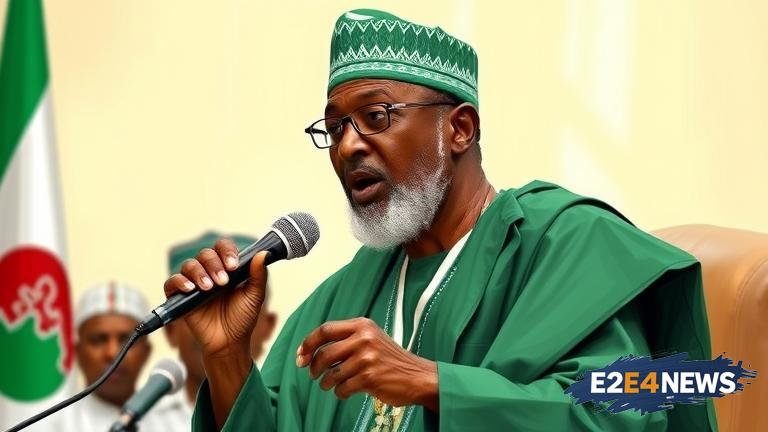A recent corruption allegation has sparked a heated debate in Nigeria, with Governor Yusuf’s administration at the center of the controversy. According to reports, the governor has been accused of engaging in corrupt practices, prompting widespread outrage and calls for accountability. However, in a move that has been widely criticized, the governor’s administration has dismissed the allegations, describing them as baseless and unfounded. Sanusi, a prominent figure in Nigerian politics, has spoken out against the governor’s response, describing it as a desperate attempt to save face. Sanusi argued that the administration’s dismissal of the allegations is not only unconvincing but also undermines the principles of transparency and accountability. The corruption allegation has significant implications for the Nigerian government, which has long been plagued by corruption and mismanagement. The scandal has also raised questions about the effectiveness of the country’s anti-corruption agencies and the willingness of the government to hold public officials accountable for their actions. Despite the governor’s denial of any wrongdoing, many Nigerians remain skeptical, citing a long history of corruption and abuse of power in the country. The controversy has also sparked a wider debate about the need for greater transparency and accountability in government, with many calling for more robust measures to prevent corruption and ensure that those responsible are brought to justice. The Nigerian government has faced numerous corruption scandals in recent years, including high-profile cases involving former government officials and business leaders. The country’s anti-corruption agency has made significant progress in investigating and prosecuting corruption cases, but much work remains to be done to address the root causes of corruption and ensure that the government is truly accountable to the people. Sanusi’s criticism of the governor’s administration has been widely reported in the Nigerian media, with many outlets praising his courage and integrity in speaking out against corruption. The controversy has also sparked a lively debate on social media, with many Nigerians expressing their outrage and frustration with the government’s handling of the scandal. As the scandal continues to unfold, it remains to be seen how the governor’s administration will respond to the allegations and whether the government will take meaningful steps to address the underlying issues of corruption and accountability. The Nigerian government has a long history of struggling with corruption, and the current scandal is just the latest example of the challenges the country faces in ensuring that public officials are held accountable for their actions. Despite the many challenges, there are signs of progress, including the establishment of anti-corruption agencies and the prosecution of high-profile corruption cases. However, much work remains to be done to address the root causes of corruption and ensure that the government is truly transparent and accountable to the people. The international community has also taken notice of the scandal, with many organizations and countries expressing concern about the implications of corruption for Nigeria’s development and stability. The United Nations, for example, has emphasized the importance of addressing corruption and ensuring that governments are transparent and accountable to their citizens. As Nigeria continues to grapple with the challenges of corruption, it is clear that the country needs a more robust and effective approach to preventing and addressing corruption. This will require a commitment to transparency and accountability, as well as the establishment of strong institutions and mechanisms for holding public officials accountable for their actions. The current scandal is a wake-up call for the Nigerian government, and it remains to be seen how the administration will respond to the allegations and whether the country will make meaningful progress in addressing the underlying issues of corruption and accountability.
